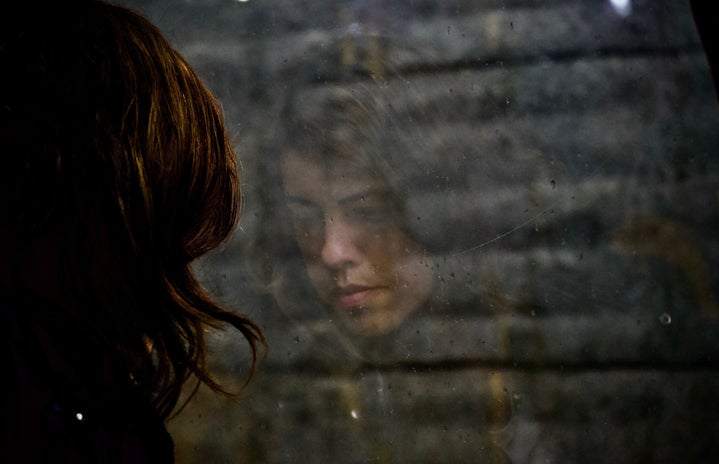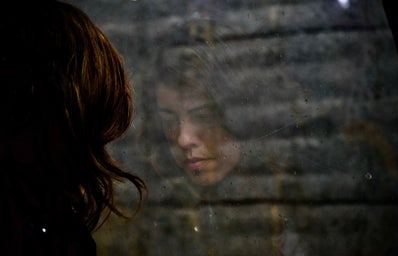*disclaimer* As female authors we have chosen to conduct research about the sexual harassment women face, but in no way we are suggesting by omitting male opinion, that men are not subject to such abuses.
(TW: Harassment, Assault, Rape)
Jane has just finished a late-night shift at her bartending job and has to walk 20 minutes to get herself home. Before her shift she took the time to pre plan her route home so she was aware of the most dangerous areas to ensure she walked in the opposite direction of cars on the road.
When leaving her place of work, she changed into shoes she can easily run in, took her hair down to make it harder to pull on in an attack, and has ensured she is wearing layered clothing that isn’t too ‘provocative.’ She double checks that her location is live on her phone, keeps her assault alarm in her hand and remembers to place her keys or bar blade between her fingers.
On her preplanned walk home, she sticks to well-lit areas that are more likely to be busy, and avoids the empty car park at the back of the building. She either keeps her headphones off or just has one ear listening to music so she is still aware of her surroundings. As she checks between the cars parked on the side of the road, she calls a close friend or her significant other so that anyone watching her knows that she is accounted for. She even contemplates acting younger than she is to put off potential attackers.
At the weekend she will attend a self-defense class with some friends to better prepare against attacks on her person.
You may have already guessed it but Jane isn’t a real person. Rather, her story details the real life responses to an online survey we carried out asking the question, ‘Women, what do you do to keep yourself safe from sexual harassment?’ While Jane may be fictional, the results weren’t and they paint a bleak picture of what it means to be a woman in today’s society.
Recently we saw an Instagram post about all the things girls do in their day to day lives to avoid being harassed in everyday life. The table in the post contained was split into two; what males do to avoid sexual assault and what females do to avoid sexual assault.
On the female side 28 items are listed. As females ourselves we believe there could be more added to this list. It is most definitely not exhaustive. On the male side one thing was listed…“Nothing. I don’t think about it”.
It is very clear from this one post alone that males and females in our society are living very different lives.
It’s a topic we had never really considered until recently. As 21-year-old women, we’ve been conditioned to always be on guard to protect ourselves against the potential threat of a man. “Don’t wear clothes that are too revealing”. “Don’t go out by yourself”. “Don’t leave your drink unattended”. It never occurred to us until recently that our male counterparts didn’t have to consider these things.
One issue women face is catcalling. It’s a sad fact that the majority of women have or will experience it within their lives. Although the male may think they are giving the female a compliment, this is far from the truth. The action of catcalling reduces a woman to an object that only exists for the sole purpose of male enjoyment. The sad fact is, even if a woman is dressed in a baggy hoodie and loose trousers it doesn’t mean she is completely ‘off the radar’ for this kind of harassment.
A further issue women deal with is inappropriate touching. No matter what a girl is wearing, unless she clearly states ‘I want this’ then do not assume it is ok to grab at her. Even then she must state the rules of where and how long. This is a common issue in settling such as nightclubs where everyone is packed together and the lighting is dark (it is not only exclusive to this setting). What was meant to be a great night out is destroyed by someone thinking they can exploit a situation. This makes women feel as though they are not the owner of their own body, it must be stolen to satisfy someone else’s desires.
Moreover, stalking is a serious issue for women in today’s society. When walking alone, especially at night, you are constantly looking behind you to make sure no one is following you back into your destination. Women are constantly on guard for a possible attack. The one time you don’t turn back to check might be the time someone exploited your situation.
These examples aren’t just our one off experiences being blown out of proportion (as some may have you believe). A 2019 study found that 3 in four women have experienced verbal sexual harassment. 49% women have been sexually touched in an unwelcome way. 40% have experienced cyber harassment. 27% have been followed. 40% have experienced ‘flashing’. 23% have survived sexual assault.(1) Many of these incidences are happening in public places. These instances are real, they happen daily across the globe and the statistics show that if you know a woman, they are more likely than not to have been harassed.
The truth is, in some ways all women are Jane; compounded by a patriarchal society that values the reputation, livelihoods and welfare of men over the basic dignity of life women so desperately need. To the women reading this, we hope this wasn’t too hard to read, we know you probably resonate, we hope you are doing well.
To the men reading this, if you are feeling defensive or uncomfortable, sit with that feeling, why are you uncomfortable with women simply sharing experiences about a common and seemingly systemic problem? If you are angered, like we are, at the current state of affairs we urge you to read more into our statistics, show up to the women’s marches, listen to your female friends when they ask you too.
If you have been affected by anything in this article below are some helplines/ websites that can offer support.
@Abdnsurvivors on instagram offers a safe space for victims of rape and sexual assault.
Rape Crisis Scotland: 08088 01 03 02 / https://www.rapecrisisscotland.org.uk/
Black women’s Rape Action Project & Women Against Rape: https://womenagainstrape.net/
Victim support Scotland: 0800 160 1985 / https://victimsupport.scot/
Scottish Women’s Aid: 0800 027 1234 / https://womensaid.scot/
Sources



